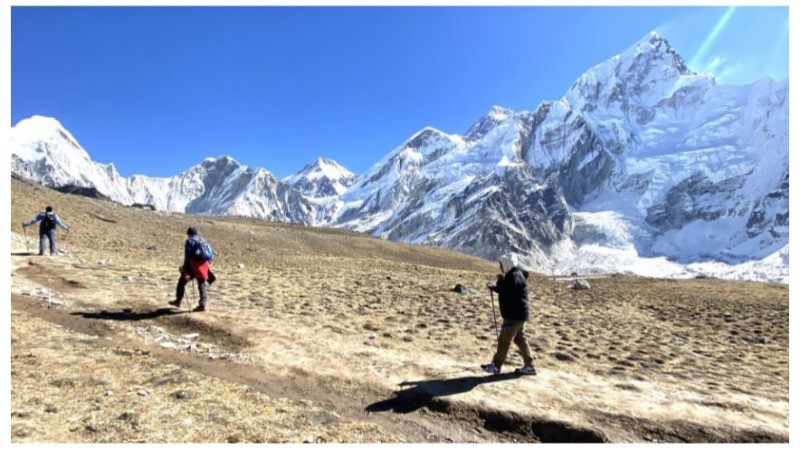
Nepal, the Asian Country, has announced a major hike in permit fees for climbing Nepal Sharply Increases Permit Fee for Mount Everest Climbers, raising the cost by over 35 per cent. This marks the first sharp increase in nearly a decade, making the ascent of the world’s tallest mountain more expensive for adventurers, officials shared on Wednesday.
For Nepal, revenue from permit fees and other expenses incurred by foreign climbers is a vital source of income and employment. The nation, home to eight of the 14 highest peaks on Earth, relies heavily on its mountainous treasures, including the iconic Mount Everest.
The fee for obtaining a permit to scale Mount Everest, which stands at a towering 8,849 meters (29,032 feet), will rise to USD15,000. Narayan Prasad Regmi, the director general of Nepal’s Department of Tourism, stated that the previous fee of USD11,000 had remained unchanged for nearly a decade. The updated pricing reflects a 36% increase.
This revised rate will take effect in September and will apply to the popular April-May climbing season along the standard South Col route, which was famously pioneered by Sir Edmund Hillary and Tenzing Norgay in 1953.
Fees for other climbing seasons will also see a similar rise. For the less popular September-November period, permits will cost USD7,500, while climbers aiming for the December-February season will pay USD3,750.
Despite the fee hike, expedition organizers believe it will not deter climbers. Approximately 300 permits are issued annually for Everest, and organizers described the increase as a “reasonable move” by the Nepalese government. They expressed hope that the additional revenue would be allocated toward improving safety measures and protecting the fragile environment on Everest. However, officials have not disclosed specific plans for the extra funds.
Every year, hundreds of climbers attempt to conquer Mount Everest and other Himalayan peaks. Yet, Nepal has faced criticism from mountaineering experts for overcrowding on Everest and inadequate efforts to maintain cleanliness and safety.
The Department of Tourism highlighted ongoing cleanup initiatives to collect waste from the mountain, as well as regular measures like rope fixing and other safety protocols.
Climbers returning from the Everest expedition have observed that the mountain is becoming drier and rockier, with reduced snow and precipitation. Experts attribute these changes to global warming and environmental shifts, raising concerns for the future of the majestic peak.